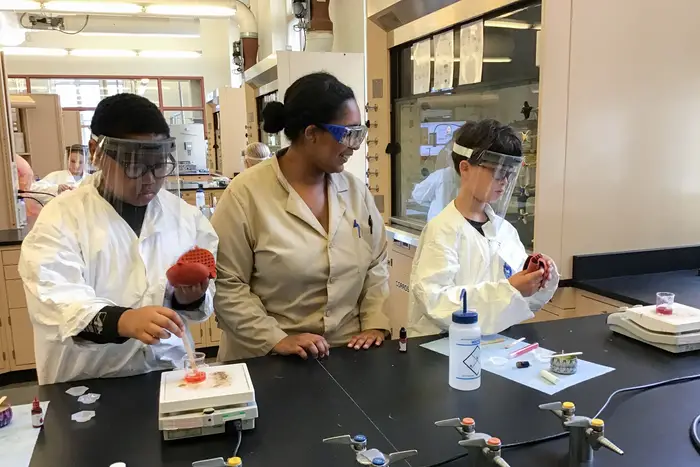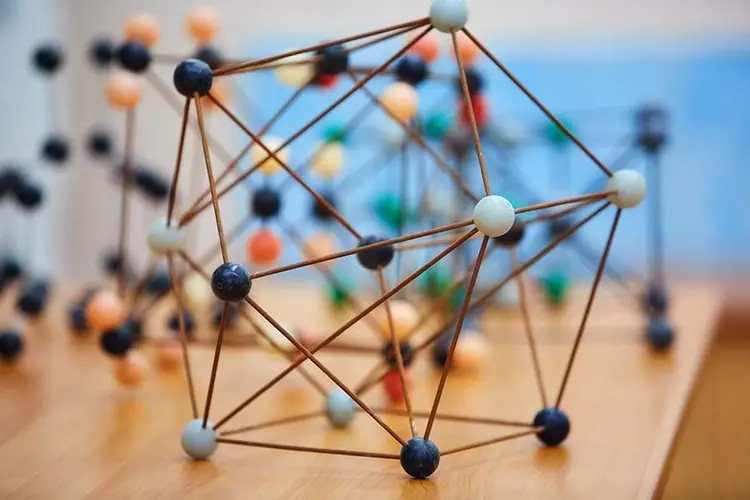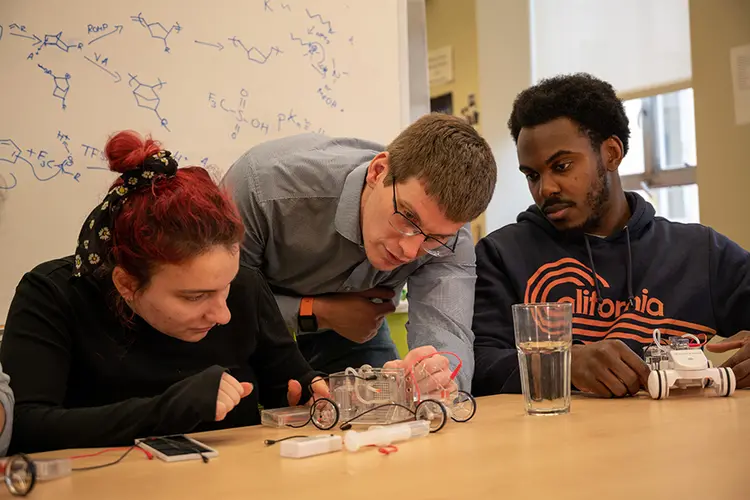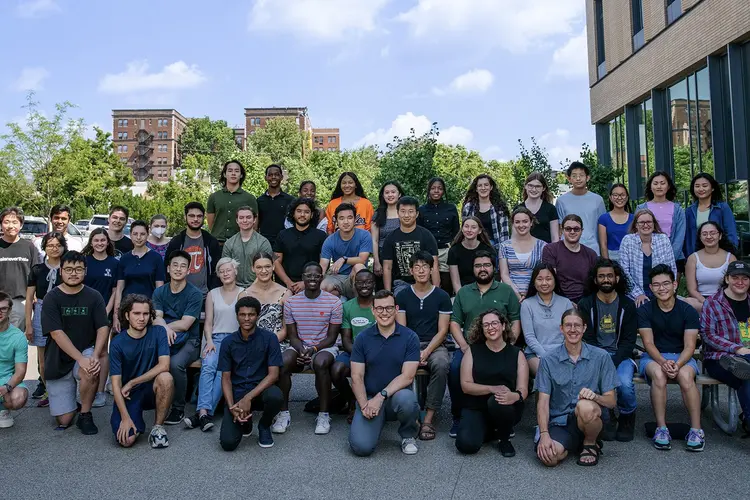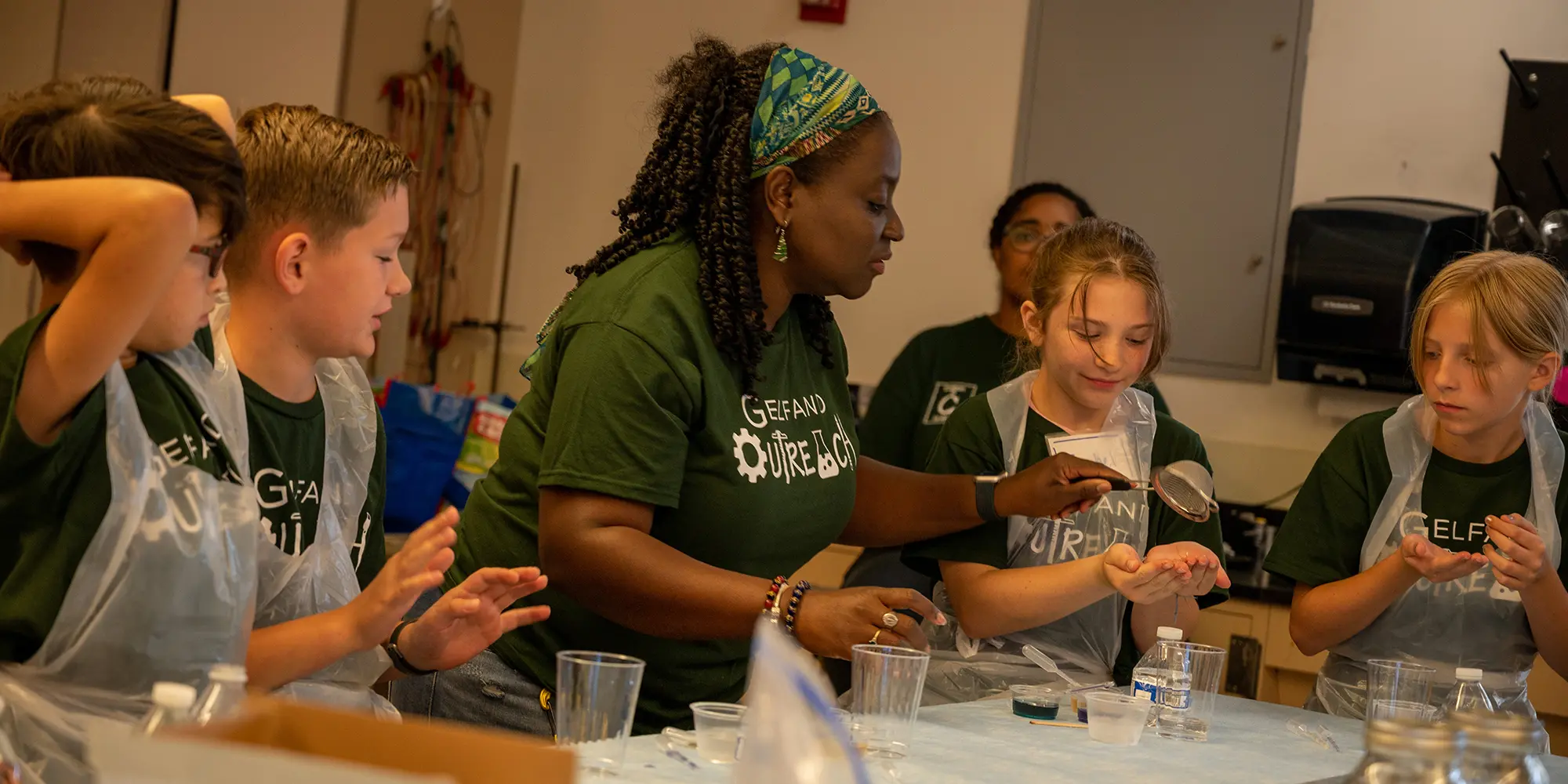
Summer Programs Create Reactions in Young Scientists
Media Inquiries
Lemonade preferences are personal.
"I like it really sour!" one child yelled as Carnegie Mellon University student teachers passed out cups of lemonade and small, dried berries.
Gizelle Sherwood(opens in new window), an associate teaching professor of chemistry(opens in new window), instructed the children to sip the drink.
"Clear your thoughts, and clear your palettes," Sherwood said as the children took sips of water. The children ate the berries and were told to drink the lemonade again.
"It's sweet!" another child said.
Students were introduced to miracle berries, which contain the protein miraculin. Miraculin modifies sweet receptors on the tongue so they respond to foods with high acidity, thus turning traditionally sour fruits — like lemons — sweet.
This experiment was part of the weeklong program A Summer of Chemistry, led by Sherwood and organized by the Leonard Gelfand Center for Service Learning and Outreach(opens in new window).
The program gave fourth- through sixth-graders exposure to a wide range of topics including cosmetic chemistry, environmental chemistry, polymer chemistry, forensic chemistry and kitchen chemistry. Sherwood had taught daylong versions of each course before, but this was the first time she combined them into a camp.
"Chemistry is foundational," Sherwood said. "I thought why not just pull everything together and see if we can do a sampler course? Let's get the kids really interested in the science while exposing them to different areas of chemistry."
From June 26-30, children made their own soaps, tested local pond water, investigated the disappearance of a teddy bear, mixed slime and created boba. The children enthusiastically participated, asking many questions.
"Children this age absorb information faster than any group, and they're not afraid to learn in any way, shape or form," Sherwood said. "They want to get their hands dirty. They want to know why, and they are curious. It is an absolute joy when they dig in and start learning."
A Summer of Chemistry is one of the many science, technology, engineering and math (STEM) programs for elementary school children that the Gelfand Center offers. Other programs include Junk Bots for grades K-2, Form and Function for grades K-2, Science and Engineering Sampler for grades 3-5 and Research @ CMU for grades 6-8. Learn more about the Gelfand Center's summer programs(opens in new window).
Pamela Piskurich(opens in new window), director of educational outreach initiatives, said summer programs are an excellent way for children to be introduced to different aspects of STEM.
"The earlier you grab them, the earlier they might be interested in STEM fields," Piskurich said. "A kindergartener through third grader probably doesn't know anything about engineering or chemistry. To introduce them at a young age, that may create a future passion they may have for pursuing a career in the field."
Students from all backgrounds are welcome at Gelfand Center programs. The Gelfand Center provides scholarships for families who want to participate but may not be able to afford the cost.
Piskurich said that the classes have significant effects on children and their parents. Children who participate in summer programs and interact with professors have reached out to those professors later for help with science fair projects or with questions on their work. Parents have noticed the positive effects from the programs in their children.
"These classes mean so much to [my sons]," one parent said via email to Piskurich. "I cannot express to you the impact your team has. It's just incredible to see how fired up and passionate they are after a session. Your team recognizes the importance of science and give these kids the license to believe they can make a difference."
Besides providing children a chance to learn more about STEM, these programs get current Carnegie Mellon students involved with teaching and outreach.
"Some of our students are interested in tutoring or mentoring as part of their service, and they find that the Gelfand Center is a good steppingstone for doing that and potentially pursuing a career in education," Piskurich said.
A Summer of Chemistry ended with participants, Carnegie Mellon students, Sherwood and Piskurich discussing the properties of liquid nitrogen while enjoying nitrogen berry sorbet. For some, it could be the start of a long career in chemistry.
"We bring in kids this age to educate them of the possibilities. You can't get into a field you know nothing about," Sherwood said. "Equipping someone with any amount of knowledge, doesn't matter how small it is, empowers them and allows them to make choices."
